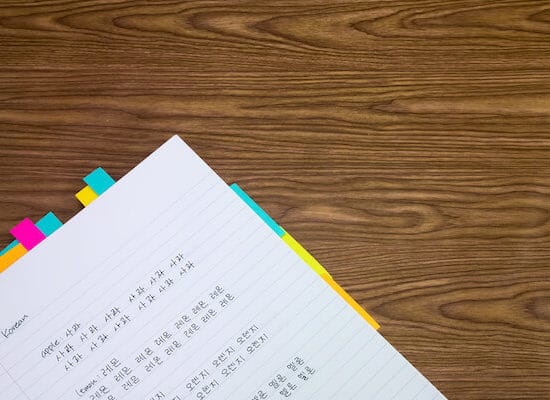3 Common Mistakes Students Make When Learning Korean

Adopting a foreign language is a challenging endeavour and as a student, you are bound to make a mistake in your study. In order to improve your grasp on any field of study, you need to be aware of the common mistakes and try your best to avoid or improve on them. This is especially the case if you have no luxury of time and are spending a large sum of money for a month’s worth of class.
If you wish to pick up the Korean language and intend to enrol in Korean classes in Singapore, here are some common mistakes you might want to watch out for.
1. Not Listening Enough
Unfortunately, for a Korean language student, you will realise that the pronunciation of certain words may be a tad different from how it’s written. If you rely on the spelling to pronounce the words, you might end up sounding stiff and awkward. Take a look at the example below.
Most students will learn formal Korean before continuing to the next stage and the common formal grammar used is the –ㅂ니다 verb form. It is usually placed at the end of the verb, with the ㅂcharacter placed at the bottom, or 받침(badchim) position. Normally, the pronunciation of –ㅂ니다 if derived from the writing, will be hap-ni-da but its actual pronunciation is ham-ni-da.
Another word that sounds different compared to the way it’s written is 같이which means together. According to the hangul, it should be pronounced as ga-tee, but in actuality, it sounds like ka-chee.
The Korean language has straightforward rules but there are certain exceptions. To be aware of these anomalies, perhaps make it a habit of listening to native speakers speak and emulate their pronunciation.
2. The Two Number Systems
Korea has two number systems that are used in different situations: the native Korean system and the Sino-Korean system. The former is used for age and counting (1-99). The Sino-Korean numbers are used for dates, money, addresses and numbers above 100.
It’s easy to mix the two but so long as you are cautious of the situation and context, there will be no problem.
3. Use The Correct Terms
As you would’ve already known, Korea still places great emphasis on social decorum, especially when it comes to the relationship that has a clear difference in the social hierarchy. This makes it all the more important to be aware of the nuances in the Korean language lest you offend somebody older or of higher social standing than you.
Apart from using formal language, you will also need to be updated with the special vocabulary that is used when referring to those of a higher social rank.
Honorifics are an essential component that reflects the relationship between the speaker and the audience. For instance, 씨 (ssi) is used refer to somebody who is of an equal speech level but only when you append it to their full name or first name. Placing it after their surname may actually offend your audience as it indicates that you consider yourself superior to them.
There are also special terms when referring to honourable celebrations. For instance, a slightly informal way to wish somebody a happy birthday, you’d use 생일 축하합니다 (saeng il chukha hamnida). But if you’d like to wish happy birthday to your parents, for example, to use the same phrase would be considered discourteous. Instead, you’d need to use 생신 축하합니다 (saeng sin chukha hamnida).
Conclusion
Of course, you’re bound to make a few mistakes here and there. However, if you’ve enrolled in a Korean Language school, your teachers will be able to guide you in the right direction. Don’t be embarrassed or discouraged when you do make a mistake as it serves as pointers to improve on the language. Make as many mistakes possible so you can improve your learning and know what to avoid!



